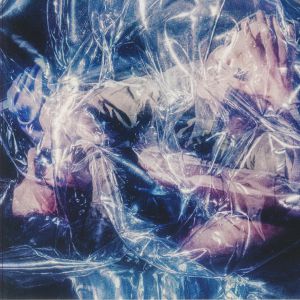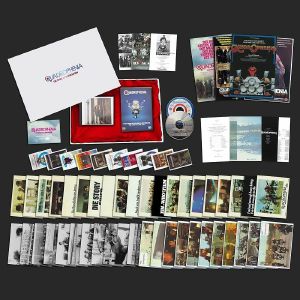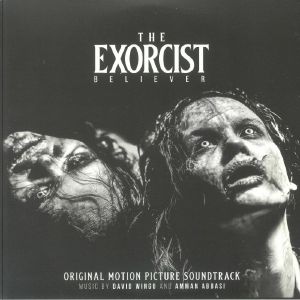Filter
在庫状況
音楽
リリースタイトル
値段
Back catalogue: Leftfield
Juno's full catalogue of Leftfield
アルバム
Review: According to the blurb we have for Doomed Utility, Alex Wang is a firm believer that if a tree falls in the forest and nobody is around, it still makes a massive noise. "Sound existed before there were human ears to hear it," we're told. Not to mention the fact we have now surrounded ourselves with machines and digital tools that immerse us in tones we don't necessarily derive pleasure from. Industrial, frenetic, electronic, post-club, deconstructed and, in moments, straddling that genius-lunatic border. Doomed Utility makes no apologies for its most intense moments, and panders not to our inherent desire to understand and make sense. These are beats, basslines, distorted walls of tormented chaos and abstract moments don't lend themselves to meaning making. Welcome to the future. It's confusing.
… Read more in stock $34.52
Review: "One might thus regard the Welsh rarebit as a Machine in which a process is applied to the conditioning and perception of the world of bread and cheese." Suffice to say, John White might not have had the same ideas about what constitutes Machine Music back in 1976 as you do today. This is also the first time we've ever managed to get a reference to Welsh rarebit into the first line of writing about a record, so everyone is learning something today. "The Machines" White refers to are the individual tracks themselves, all recorded between 1967 and 1972 and all comprising different combinations of a thing. Six pairs of "bass melody instruments" made 'Autumn Countdown Machine', different permutations of "the articulations 'ging, gang, gong, gung, ho!'" comprise 'Jews Harp Machine'. And 'Son of Gothic Chord' is crafted from the sequential chord progression of four keyboard players, spanning an octave. Conceptual experimental and wildly imaginative stuff on the borderline of electronica, abstract, mathematical and something otherworldly.
… Read more in stock $28.71
The WHO / VARIOUS
Quadrophenia (Soundtrack) (Super Deluxe Edition) (limited unmixed CD + DVD + posters + booklets + inserts + postcards + film cel)
Cat: BSPED 028BOX. Rel: 10 Apr 25
Review: The most eminent British rock opera of all time, The Who's Quadrophenia, released in 1973, hears Pete Townshend, John Entwistle and Roger Daltrey conceive and narrate the angst of a young postroom worker, Jimmy, living in post-war Britain amid the schismatics of the mods and rockers, as they warred in converse step. Exploring rebellion, let-off steam, and alienation through music, the record firmly set the stage for the 1979 film adaptation of the same name, which popularised the thoroughfare connecting London-Brighton as a vital identificatory artery for a certain angst-ridden generation. The album features standout tracks like '5:15' and 'Love, Reign O'er Me', and remains one of The Who's most celebrated works. It's now reissued through Bespoke Editions, with two CDs of Pete Townshend's demos, and a 5.1 DVD-A remix of eight tracks, plus handwritten lyrics in a book and a 13,000-word essay from Townshend.
… Read more in stock $127.02
The Exorcist: Believer (Soundtrack) (B-STOCK) (gatefold 180 gram black & white swirl vinyl 2xLP + booklet)
Cat: WW 201 (B-STOCK). Rel: 01 Jan 90
B-STOCK: Creasing to corner of outer sleeve but otherwise in excellent condition
in stock $38.65

 USD
USD










